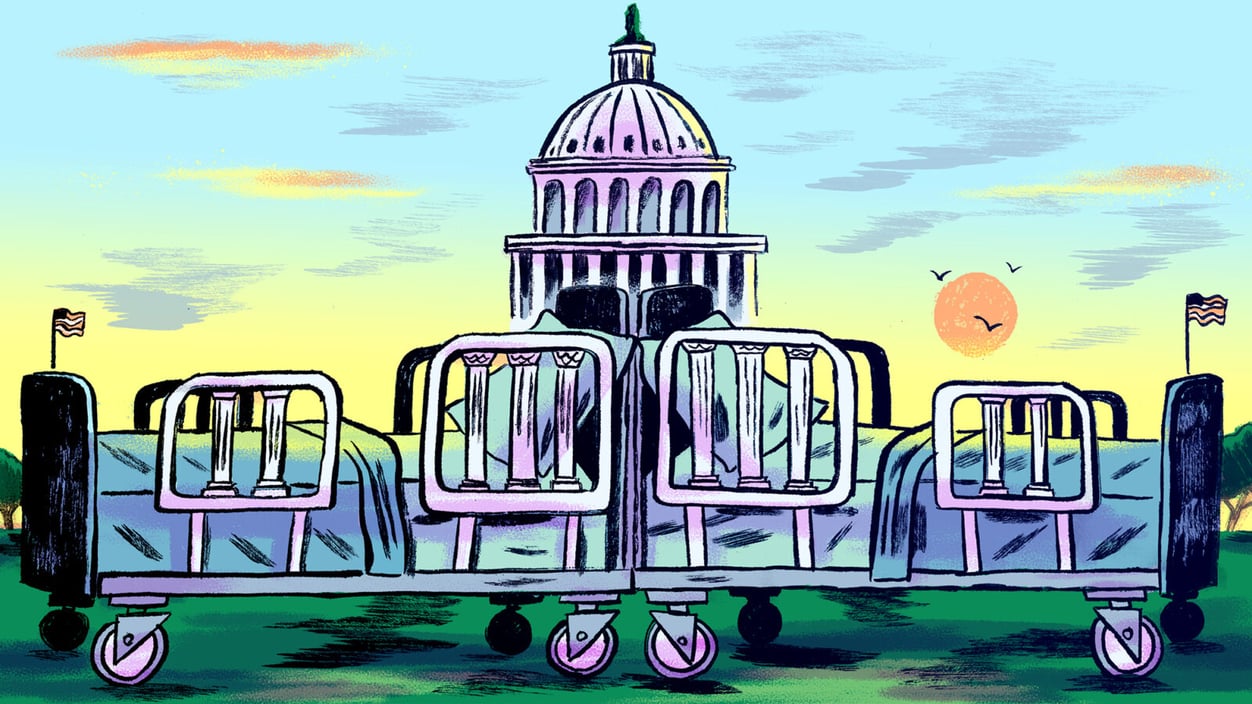house speaker
Republicans like Mike
At long last, Republicans have ended a grueling three-week odyssey and chosen a new leader: newly elected House Speaker Mike Johnson.
Johnson led the Republican Study Committee, which is responsible for putting out policy ideas, from 2019 to 2021. During that time, the panel released a health care plan. There’s no reason to believe that Johnson would push to implement this outline anytime soon (he’s got a full plate with simply keeping the government open), but it may be a helpful barometer for where he stands.
The plan included creating “federally-funded, state-administered Guaranteed Coverage Pools” for patients with high-cost illnesses, turning Affordable Care Act subsidies and Medicaid expansion funding into block grants for states, allowing HSAs to be used to cover more expenses, eliminating “mandates” for people to pay for coverage they don’t want, enhancing HSAs to enable people to carry health coverage from job to job, and promoting telehealth, association health plans, direct primary care, and health sharing ministries.
At the time, Johnson said the Affordable Care Act caused “sky-rocketing premiums, egregious deductibles, and outrageous out-of-pocket costs.”
Johnson is also close with Energy & Commerce Chair Cathy McMorris Rodgers, who nominated him for the role, according to Rep. Brett Guthrie, chair of the committee’s health subcommittee. “We have to work together [on] The Transparency Act, the SUPPORT Act,” Guthrie told reporters. “They have some snags right now, but they’re moving…they absolutely can be bipartisan.”
congress
Democrats’ hospital divide
 Mike Reddy for STAT
Mike Reddy for STAT
Democrats have campaigned election cycle after cycle on lowering health care costs, and they confronted both the health insurance and pharmaceutical industries without a single Republican vote. But the elephant in the room is reining in hospitals, which make up the largest portion of U.S. health care spending. Efforts to take on the industry are dividing Democrats, I write in a new story out this morning.
This Congress so far has shown that Democrats can’t agree on even marginal measures to remove hospitals’ ability to charge more to Medicare for the same services provided cheaper in doctors’ offices, and codify price transparency rules that already exist. And it’s not looking like a Sen. Bernie Sanders-led effort to ban some facility fees and implement contracting reforms in the Senate is going anywhere fast.
Medical debt is a potent kitchen table issue, and it’s disproportionately carried by Black and Hispanic adults. It’s also part of the rude awakening facing the party: that the decadelong push to expand insurance coverage through the Affordable Care Act still has not made health care affordable for many. If Democrats can’t unite, advocates for change will have to pursue bipartisan reforms in an increasingly polarized Congress.
legal watch
Hospitals threaten to sue over 340B pay fix
HHS is in the unenviable position right now of trying to figure out how to pay some hospitals back for money they should have gotten for administering discounted medicines. The problem is, that money already went to other hospitals.
Hospitals are accusing HHS of pursuing an illegal plan to fix the situation, my colleague Bob Herman writes. They’re arguing that the department shouldn’t claw back any of the money it gave to hospitals who don’t participate in the 340B drug discount program in the name of balancing the program’s budget. And if they don't get their way, the Federation of American Hospitals is threatening to sue.
It’s a big pot of money that could be clawed back: $7.8 billion, to be exact. Hospitals sued HHS all the way to the Supreme Court to get this ruling in the first place, so it’s worth tracking.



